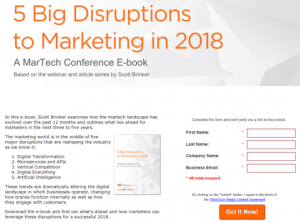Sometimes you have to stop looking at something the way you always have and consider it from a completely different perspective.
On one hand the question of why delivery is so important in retail seems laughably obvious; a customer buys something so you have to deliver it to them, right? Well, yes, of course. But if you want to be a true multichannel success, you have to stop looking at fulfilment as being a purely transactional operation and start thinking like a customer.
Perhaps 15 years ago, there were still plenty of people nervous about online retail – can I trust this website, will I get what I think I’ve bought, will I get anything at all…? But, by now, online sales and ecommerce are well-established, accounting for 20% of UK firms’ turnover.
In the main, such concerns no longer exist in great numbers; online shopping – especially in the UK – is widely accepted as safe and secure. According to the Office for National Statistics (ONS), four in five Britons made at least one online purchase in 2014, and ecommerce sales in the UK have shot up 66% between 2008 and 2013[1].
Add into that the growing number of shoppers for whom online is the norm, and for whom direct physical contact with the retailer is becoming less and less frequent.
The chief consideration for multichannel retailers, where fulfilment is concerned, is that the point of delivery is the point at which you will be judged on your ability to keep your promises. If you made it easy for me to spend my money with you, did you also make it easy for me to receive (and if necessary return) my purchases? Did you offer me a range of delivery and collection options that fit with my life or do you expect me to have to accommodate the delivery company?
Speed of delivery is still the most obvious consideration for many. More and more brands are working on beating their own delivery time records. 24hr or Next Day Delivery is now quite a common service provided by retailers.
Shutl, London-based technology start-up, offers a rapid fulfilment service by connecting online retailers with local same-day couriers. The company allows retailers who may not have the same infrastructure or resources as other big brands the opportunity to provide their customers a delivery service of under 90 minutes. However, it isn’t just small retailers who find Shutl useful. Argos can fulfil orders from its stores via the Shutl service to nearby homes in as little as 15 minutes.
Nonetheless, speed isn’t everything; in survey after survey, convenience has trumped speed.
Next-day home delivery is great if I know I’m going to be at home the day after I place my order. But what if I’m not? Can you send my parcel to a collection point near me, or will I be fishing it out of my wheelie-bin later that evening?
Will you be able to notify me that my parcel is going to arrive at a particular time, so that I can still go about my day and be sure to be in when the courier turns up? Or am I going to have to go to a sorting office on Saturday morning to queue up for ages to get my parcel, which was delivered on the next-day?
Retailers and carriers alike need to optimise their fulfilment operations so that the needs of the customer are prioritised. Some already do, and despite the massive investments involved, they are likely to form a breakaway group of class-leading retailers and carriers, offering great services built around great customer service and convenience at every stage.
A good example of this is Sainsbury’s, who performs well for the delivery promises it makes for both grocery and non-food products. It stands out for one-hour timed delivery slots and for a market-leading returns policy that offers a full refund for up to 12 months on non-perishable items, while a partial refund is available after 12 months[2].
As more and more companies follow Sainsbury’s example, retailers are striving their creativity to further develop fulfilment solutions.
After Amazon’s success with their Prime service of free 2-hour delivery, the company has been testing new and innovative delivery methods with Amazon Prime Air. This service intends to use flying drones to make deliveries to your doorstep in under 30mins.
Starship Technologies, created by the founders of Skype, has created a self-driving robot, which can carry out deliveries in under 30 mins. The robot was unveiled this February and will begin delivery trials in Greenwich in March. With current robotics developments you may think that the process could be complicated, but this new machine can travel at walking pace, 4mph, cross the road, avoid obstacles and find its way around, thanks to 3G technology. It has the capacity to carry up to 20lbs at a cost of £1, which is claimed to be between 10-15 times less than the cost of current last minute delivery alternatives.[3]
For some, ecommerce and mcommerce will only begin to overtake high street retail when the delivery process truly embraces both convenience and speed.
Retailers who are able to deliver goods quicker than it would be for you to go to the shops, purchase the goods and come back, will be the ones who will succeed. Indeed, as shoppers grow accustomed to the idea of fast and convenient delivery, their expectations stretch even further.
Getting delivery right means customers have options – brands and traders that are perceived as flexible and accommodating win more sales. Those who don’t may have to find partners they can collaborate with to get over those hurdles they’ll never clear alone. Failure to do so could result in them being part of a group that can’t compete on service and can only compete on price.
Best practices, key trends and discussions of multichannel fulfilment will be seen this 27th and 28th April at the eDelivery Expo (EDX16), at the NEC Birmingham.
Delegates attending The Multichannel Fulfilment Conference track, within the tradeshow, will hear from a range of experts sharing views, expertise, and case studies on best practice in multichannel fulfilment and how it is becoming the new battleground for customer loyalty.
[1] http://www.cityam.com/225833/uk-e-commerce-capital-eu-four-five-britons-shopping-online-past-year
[3] http://www.dailymail.co.uk/sciencetech/article-3459854/The-end-courier-Self-driving-ground-drone-takes-streets-London-make-drops-capital.html
First published in Intralogistics Magazine, volume 3, issue 2
Digital & Social Articles on Business 2 Community(18)






